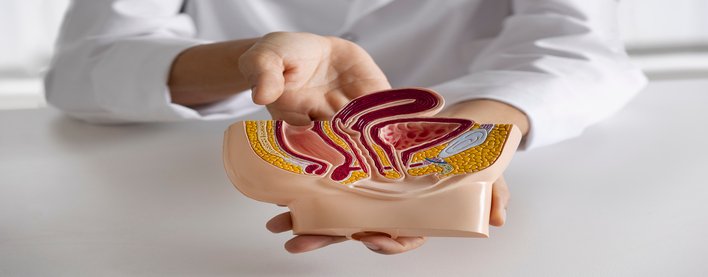Prostate Health : Understanding, Maintenance, and Vitality
Prostate health is a critical aspect of men's overall well-being, yet it often remains overlooked until problems arise. The prostate gland, though small, plays a significant role in reproductive and urinary functions. Understanding how to maintain prostate health is essential for preventing diseases and ensuring a fulfilling quality of life. This essay explores the importance of prostate health, common issues affecting the prostate, preventive measures, and strategies for maintaining optimal prostate function.
The Importance of Prostate Health: The prostate gland, located just below the bladder and in front of the rectum, is an integral part of the male reproductive system. Its primary function is to produce fluid that nourishes and transports sperm during ejaculation. Additionally, the muscles of the prostate help propel semen through the urethra during ejaculation.
Maintaining a healthy prostate is crucial for several reasons. Firstly, prostate problems can significantly impact urinary function, leading to issues such as frequent urination, difficulty starting or stopping urination, weak urine stream, or even urinary retention. Secondly, prostate disorders, particularly prostate cancer, are prevalent among men, with the American Cancer Society estimating that about 1 in 8 men will be diagnosed with prostate cancer during their lifetime. Thirdly, prostate conditions can affect sexual function and overall quality of life.
Common Prostate Issues: Several conditions can affect the prostate, ranging from benign to malignant. Benign prostatic hyperplasia (BPH), also known as prostate enlargement, is a common condition in aging men. It occurs when the prostate gland grows larger and squeezes the urethra, leading to urinary symptoms such as difficulty urinating or frequent urination.
Prostatitis, an inflammation of the prostate gland, is another common issue. It can cause pelvic pain, discomfort during urination, and flu-like symptoms. Prostatitis can be acute or chronic and may result from bacterial infection or other factors.
Prostate cancer is the most serious prostate-related condition. It occurs when cells in the prostate gland grow uncontrollably, forming tumors. Prostate cancer often develops slowly and may not cause noticeable symptoms in its early stages. However, as the cancer progresses, symptoms such as urinary problems, blood in the urine, erectile dysfunction, or bone pain may occur.
Preventive Measures for Prostate Health: While some risk factors for prostate conditions, such as age and family history, are beyond one's control, several lifestyle choices can help promote prostate health and reduce the risk of developing prostate problems.
- Maintain a healthy diet: Consuming a balanced diet rich in fruits, vegetables, whole grains, and lean proteins can provide essential nutrients and antioxidants that support prostate health. Limiting intake of red and processed meats, saturated fats, and refined sugars is also advisable.
- Stay physically active: Regular exercise not only helps maintain a healthy weight but also promotes overall well-being, including prostate health. Aim for at least 150 minutes of moderate-intensity aerobic activity or 75 minutes of vigorous-intensity activity per week, as recommended by health authorities.
- Maintain a healthy weight: Obesity and excess body fat have been linked to an increased risk of prostate cancer and other prostate-related conditions. Maintaining a healthy weight through diet and exercise can help reduce this risk.
- Get regular screenings: Men should discuss prostate cancer screening with their healthcare providers, particularly starting at age 50 for those at average risk. African American men and those with a family history of prostate cancer may need to start screening earlier.
- Limit alcohol consumption and quit smoking: Excessive alcohol consumption and smoking have been associated with an increased risk of prostate cancer and other health problems. Limiting alcohol intake and quitting smoking can have positive effects on overall health, including prostate health.
Maintaining Optimal Prostate Function: In addition to preventive measures, certain lifestyle habits and dietary choices can promote optimal prostate function and alleviate symptoms associated with prostate conditions.
- Practice good urinary habits: Urinate when you first feel the urge and empty your bladder completely each time. Avoid delaying urination, as holding urine in the bladder for prolonged periods can increase the risk of urinary tract infections and other issues.
- Manage stress: Chronic stress can exacerbate symptoms of prostate conditions such as prostatitis and may contribute to inflammation in the body. Incorporating stress-reduction techniques such as meditation, deep breathing exercises, or yoga into your routine can help promote prostate health.
- Consider prostate-supportive supplements: Some natural supplements, such as saw palmetto, beta-sitosterol, and lycopene, have been studied for their potential benefits in supporting prostate health and reducing symptoms of BPH. However, always consult with a healthcare provider before starting any new supplement regimen.
To sum up , Maintaining prostate health is essential for men of all ages. By understanding the importance of prostate health, recognizing common prostate issues, and adopting preventive measures and healthy lifestyle habits, men can take proactive steps to support optimal prostate function and reduce the risk of developing prostate-related conditions. Regular screenings, healthy dietary choices, regular exercise, stress management, and avoiding tobacco and excessive alcohol consumption are key components of a comprehensive approach to prostate health. By prioritizing prostate health, men can enjoy a better quality of life and reduce the risk of prostate-related complications in the long term.











.png)





.jpg)

